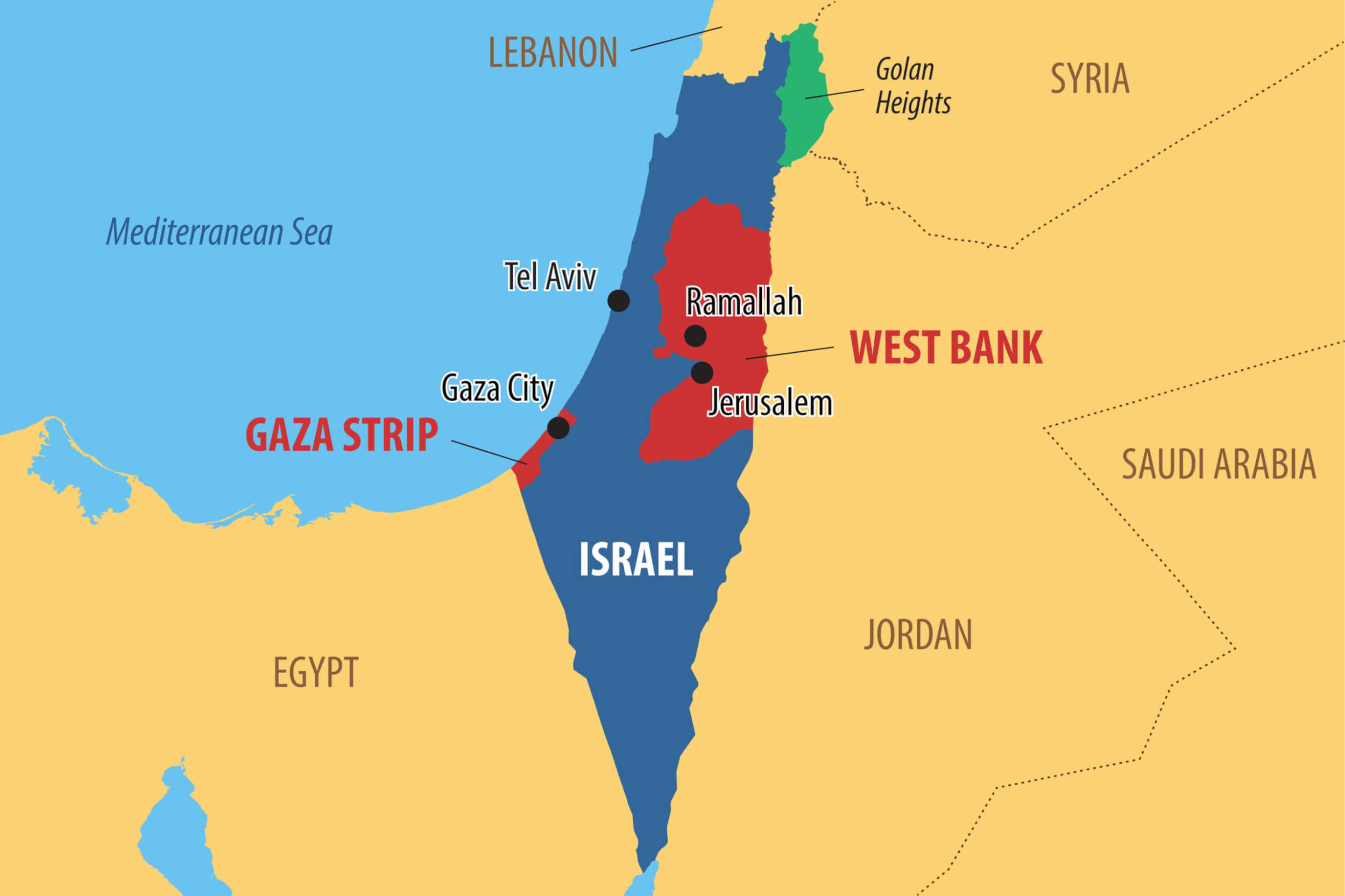Monday marks the one-year anniversary of the October 7, 2023 attacks by Hamas on Israel, in which thousands were killed and hundreds taken hostage. Over the past year, the war has expanded dramatically. Israel responded by invading Gaza, where tens of thousands of people have been killed and are suffering as infrastructure has been destroyed. Hezbollah launched missile strikes on northern Israel, forcing the displacement of thousands of civilians. Violence has broken out in the West Bank with reports of Israelis attacking Palestinians. Houthi rebels have attacked shipping lanes and Israeli targets. Israel has targeted various Hezbollah leaders and officials and now is engaged in direct fighting in Lebanon. Iran has now launched two missile attacks on Israel. And, at the time of this writing, Israel is weighing its response. The region is on the precipice of a larger war.
I know that within our community, there are very strong opinions about this conflict. We are all saddened by the loss of innocent lives, particularly the children who have been killed and wounded. I write not to opine, but to share how we intend to educate and support students as they continue to process this important global event. Our more mature students are aware of this regional violence and war; as are our younger students who are from Jewish or Muslim backgrounds. As always, our goal is to help students understand the complexity of the world and to live our values of courage, kindness, and intellectual curiosity. Our role as educators is to provide a safe place to discuss and better understand the complexities of those acts.
For many in our community, this conflict touches personal and emotional chords. Some may have family and friends in the affected regions, while others may feel a deep connection to either Israel or Palestine for religious, cultural, or personal reasons. It is important that we create space for these emotions, encouraging open dialogue and mutual respect for the diversity of experiences and opinions that exist within our school. And we should all recognize that no debate we have on this campus is going to have any impact on the decision-making process of the leaders of Israel, Iran, Hamas, or Hezbollah. Thus, I ask that we control our emotions as best we can and not let outside events divide us from our shared sense of purpose.
This is also a moment for us to model for our students how to engage with difficult and complex global issues in a way that is respectful, informed, and compassionate. We can help them understand the difference between acts of violence and the broader aspirations of people on all sides for peace and security. We must teach them to be both empathetic and discerning, recognizing the human toll of this conflict, while seeking pathways toward understanding and reconciliation.
We remain committed to supporting our students, employees, and families through this challenging time. If you or your child would like to talk with someone, our counseling team is available, and we encourage you to reach out. Additionally, we are planning forums where our community can come together to discuss these issues in a safe and respectful environment.
At Back-to-School Night this year, I shared two conversations I had last spring. One was with a Muslim dad, who urged us to lean into this discussion. Shortly after that conversation, a Jewish dad, who has visited Israel, Gaza, and the West Bank, urged me to do the same thing. At the time of those conversations, protests on college campuses were roiling, and pretty much every educational leader I knew was worried about just how to approach this subject in ways that wouldn’t be divisive. But I was intrigued by these requests. And just last week, I met with two moms–one Jewish and one Muslim–who asked about the school hosting some type of potluck gathering for Jewish and Muslim families. The goal would be not to debate the war, but just to share space. I have found in my conversations over the past year with families affected by this conflict that despite different positions they are concerned about rising anti-Semitism and Islamophobia and how that affects their children. At the end of the day, we all want our kids to feel safe and supported, and know that they are being seen.
This week we announced that we are partnering with ConnectED, an organization that focuses on educating about the Israeli/Palestinian conflict, islamophobia and antisemitism, media literacy, and courageous conversations. Through ConnectED, we are planning to hold a skills-based workshop for Middle and Upper School students on October 8 to help increase capacity and empathy around difficult conversations, as we prepare for the upcoming U.S. Presidential election. On March 10, we plan to host a Zoom presentation where two scholars—one Israeli and one Palestinian—will model a courageous conversation. This event will be streamed on Zoom for Upper School students, families, and alumni, so please be on the lookout for more information in February 2025. (I just had my first meeting with a number of other prestigious schools working with ConnectED. Aside from their educational materials, all of the schools are forming a network to learn from each other about how to best hold courageous conversations.)
Through our holistic approach, we aim to prepare our students not just for success in their academic pursuits, but for meaningful and fulfilling lives. We aim to empower them to think critically, act ethically, and contribute positively to society. This is why we are here—to build a very intentional community and to make a lasting impact on the lives of our students as individuals. By doing this we will prepare them for difficult times like these.
As we reflect on this moment, let us hold in our hearts the desire for peace and resolution of this conflict.
